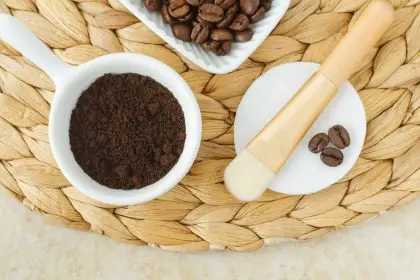Growth cycle phases
Hair grows in distinct cycles, each with specific functions. The first phase is Anagen, the active growth phase, where the hair follicle is working hard to produce hair. The second phase, Catagen, is a transitional phase, marking the end of growth. In the third phase, Telogen, the hair follicle rests and no new hair is produced. Finally, the Exogen phase is when old hairs shed to make room for new growth.
Hair growth is not just about the cycles; it also requires proper cellular processes. Protein synthesis, cellular division, blood circulation, and nutrient delivery all support healthy growth and follicle strength.
Essential nutrients for hair health
Several essential nutrients are identified as crucial for optimal hair growth and health. Among these, biotin stands out. This vitamin supports keratin production, strengthens hair follicles, and encourages cell proliferation. It plays a significant role in optimizing protein synthesis, which is vital for the health of hair strands.
Another important nutrient is vitamin C. This vitamin is key for collagen formation, a protein that maintains hair structure. It also offers antioxidant protection, neutralizing free radicals that could harm hair follicles. Moreover, vitamin C improves iron absorption, which is essential for hair growth.
Zinc is another nutrient that cannot be overlooked. It helps with DNA synthesis, which is critical for hair growth, and supports protein structure maintenance. Zinc is also important for hormone balance, which influences hair growth cycles. It boosts the immune system, reducing the likelihood of scalp infections that can impede hair health.
Folic acid, or vitamin B9, plays a role in cell regeneration and DNA repair, which are vital for hair follicle function. It also supports red blood cell formation, which ensures that hair follicles receive the oxygen they need to thrive. Folic acid is instrumental in tissue growth and overall scalp health.
Omega fatty acids, found in sources like fish oil and flaxseeds, have a profound impact on scalp health. They reduce inflammation, help retain moisture, and support the cellular membranes of hair follicles. A healthy scalp is essential for optimal hair growth, as it nourishes the follicles and prevents conditions that could hinder growth.
Hair loss patterns and causes
Hair loss can occur for various reasons, and understanding the specific causes helps guide the best course of treatment. One of the most common types of hair loss is androgenetic alopecia, commonly known as male or female pattern baldness. This condition is influenced by hormonal imbalances and genetic factors, which lead to gradual hair thinning.
Another cause of hair loss is telogen effluvium, a condition often triggered by physical or emotional stress. In this case, a large number of hair follicles prematurely enter the resting phase, resulting in noticeable shedding. Nutritional factors, such as deficiencies in iron or protein, can exacerbate this condition. However, recovery is possible once the underlying causes are addressed.
Supplementation strategies
When it comes to supplementation, timing is essential for maximizing nutrient absorption and optimizing hair growth. For example, some vitamins, such as vitamin D and omega fatty acids, are best absorbed with meals, as they are fat-soluble. Taking them at the right time ensures that the body can use them effectively.
Additionally, the quality of supplements matters. It’s crucial to choose products with high bioavailability, meaning they are easily absorbed by the body. Look for supplements that are third-party tested for purity and potency to ensure you’re getting what you need without unnecessary additives.
Before starting any supplementation regimen, consulting with a healthcare professional is important. Sudden hair loss or scalp conditions may indicate an underlying health issue that requires medical attention. A healthcare provider may recommend blood tests or a scalp examination to pinpoint deficiencies or hormonal imbalances.
Lifestyle factors influencing hair health
Beyond supplementation, several lifestyle factors contribute to hair health. A well-balanced diet rich in essential nutrients plays a significant role. In addition to improving nutrition, stress management is crucial. Chronic stress can exacerbate hair loss, so managing it through mindfulness practices, meditation, or regular physical activity can help mitigate its effects.
Sleep quality is another critical aspect of maintaining hair health. Poor sleep disrupts the body’s ability to repair and regenerate cells, including those in hair follicles. Ensuring adequate sleep each night supports overall health and hair growth. Regular exercise, which improves circulation and reduces stress, can also promote hair health by increasing nutrient delivery to the follicles.
Conclusion
Supporting healthy hair growth requires a comprehensive approach that includes proper nutrition, supplementation, and lifestyle choices. Understanding the biological processes behind hair growth, along with the essential nutrients that support these processes, can help individuals make informed decisions about their hair care. Whether addressing hair loss caused by stress or genetics, a combination of supplementation, a balanced diet, and stress management can lead to healthier, stronger hair.
















